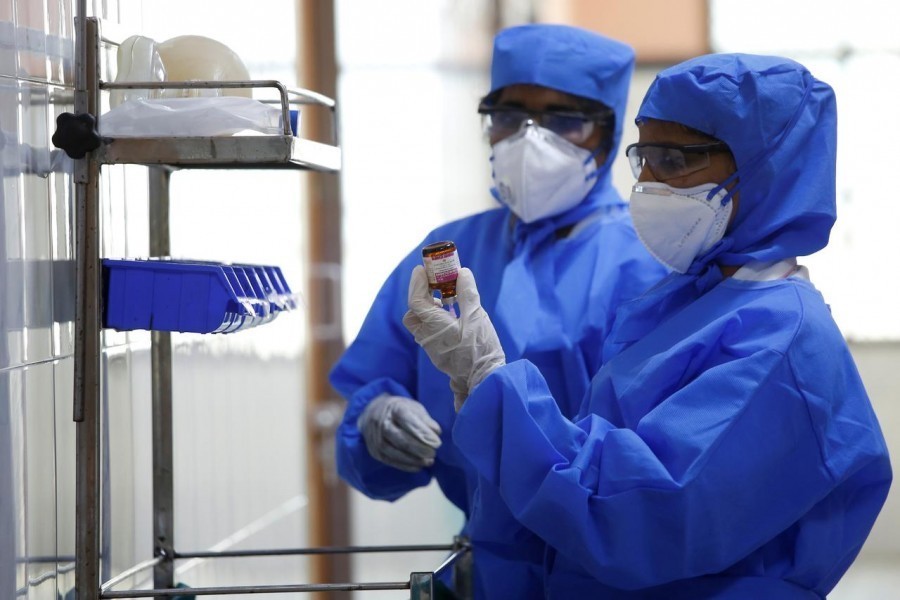The world is passing through an unprecedented crisis on account of coronavirus. It has already cost more than one hundred thousand lives. Whereas the first 50,000 deaths occurred in 80 days or so, the next 50,000 succumbed to it within 8-10 days! South Asia, including Bangladeshwitnessed a near flat curve as far as attacks and deaths are concerned for a while but now death tolls in this region have been picking up in an exponential rate. Despite thepositive steps initiated by the government of Bangladesh in containing the spread of corona, the country willsurelybear the brunt in terms of socio-economic indicators.
Possibly the world was not so much in panic, even with the spread of plague that once reportedly killed millions and millions of people on earth. This time, all production activities, inter and intra-country movement of people, gatherings and even small festive and religious congregations are put off in the interest of minimising infection and fatalities. No work but get pay seems to be the rule everywhere. An economic recession is unavoidable.
The International Monetary Fund (IMF) has officially declared that the global economy has entered an era of economic recession - defined as a sustained period when economic output falls and unemployment rises. Some would even argue that this time the depression will be greater than the 'great depression' of the 1930s. The IMF argues that the recession has been the result of the spread of new coronavirus that forced a shutdown of all economic activities across the world. Again, the Managing Director of the IMF, KristalinaGeorgieva added that the sudden stoppage of the economy might raise therisks of the waves of bankruptcies and layoffs "undermining not only recovery but also erode the fabrics of global societies".
As could be glimpsed through various reports produced by international organisations, including IMF,four waves of economic pains, each building on the last, stand before the world at large: (a) the sudden cessation of all economic activities certainly created a panic about pay and perceived return to work as in normal times; (b) when economy stops functioning, GDP plummets leading to lay-offs and unemployment -estimated to exceed 30 per cent!; the shattered stock market will be the last nailon the coffin of those in near retirement; (c) business will cut investment; corporations will not create factory, media will have no publication; (d) social distance affecting/collapsing small business, petty trade thus contributing to 'quarantine unemployment',not cyclical unemployment.
Paul Krugman, the Nobel winner in Economics, says," only part of what we're facing is conventional recession, which can be offset by fiscal and monetary policy; the rest of it is more like a natural disaster, where the government's role is to help families avoid economic hardship to put them back to work".
Affected countries, including Bangladesh, have put forth all of their resources to face this deadly disease. Rich and developed countries like the USA, France, the UK, Italy, Spain with strong and dedicated health system are facing an uphill task to contain the spread of the virus and deaths but things are getting bad to worse there. South Asian countries are more vulnerable because of their very weak health infrastructure especially public healthfacilities, lack of coordination among service agencies fuelled by inexperience, high population density, illiteracy etc. The good news, however, is thatthree important but very simple steps could vastly improve the situation - for example more tests and more isolation for those with detection, maintaining social distance by keeping confined to own house and avoiding mass gathering, complete lock-down of cities and location to prevent transmission from one place to another and finally, adopt some handy hygienic rules like hand washing with soap and a few other practices.
These are very simple solutions and remember that Bangladesh has fought many wars against formidable foes with simple, cost-effective solution such as oral saline made of salt and molasses. Given the commitment of the government, hopefully, the situation in Bangladesh will not be as worse as it is thought to be. The lockdown, even curfew if necessary, should continue to minimise the loss of lives.
We are not oblivious of the socio-economic consequences of the lockdownfor the future. It needs no reiteration that stoppage of works in formal and informal sectors would reduce GDP and its growth in absolute terms but Bangladesh might do better than other developing countries in terms of growth rate.
The Prime Minister has already announced a package of incentives not only for business and trade but also for agriculture and health services. Definitely weshall shed light upon the socio-economic costs of corona in due time but now is the time to save life.
Abdul Bayes is a former Professor of Economics at Jahangirnagar University and currently an Adjunct Faculty, East West University. [email protected]


